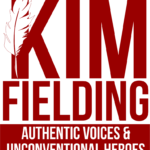I’m an author, so it’s no surprise that I sometimes muse on the power of language. Recently I’ve been thinking a lot about the effects of word choice. With over a million words, English has a particularly rich vocabulary, partly because of its habit of hijacking words from other languages. That means we often have a rich bank of synonyms to draw on, each with a unique shade of meaning.
Of course, writers know this and take advantage of it, using precise word choice to convey a specific meaning. For example, suppose your character is about to cross the street. She can walk. Or she can dart, sidle, shuffle, race, skip, limp, trudge, march, stomp, schlep, strut, saunter, or prance. Notice how the vocabulary here tells us more than just that she’s moving. It tells us how, and in an economical way, conveys information about the character’s mood or intentions.
But while using words to give shades of meaning is a necessary tool for authors, it also creates some issues.
Research has demonstrated that word choice can affect our memory of an event. In a famous experiment, psychologist Elizabeth Loftus showed people a tape of a car accident. But a week later, when she interviewed the participants, she asked half to estimate the cars’ speed when they hit each other. She asked the other half how fast the cars were going when they smashed into each other. Although everyone saw the same tape, the people who heard “smashed” estimated higher speeds. The wording of the question changed how they remembered the event (which is significant when assessing the reliability of eyewitness testimony).
I just returned from a couple of weeks in Europe, specifically in Paris and Florence. I speak only a little French and no Italian, so the finer shades of meaning in those languages are completely lost on me. I’m aware, for example, that French has a lot of ways to say “good-bye,” but I’m fuzzy about when to use which. Au revoir? Bonne journée? À bientôt? Salut? Adieu? Ciao? (Yes, I know that last one’s Italian, but I’ve heard it used throughout Europe.) I try to be polite when I travel, and to use as much of the local vocabulary as I can, but I worry about making a social faux pas by choosing the wrong synonym.
I recently learned of another situation where vocabulary is important. I attended an academic conference, where I had a great conversation with a researcher from Slovenia. We were discussing bias against LGBT people in our respective countries. She told me that in Slovenia, getting people to understand transgender folks is complicated due to a language issue. In English we can distinguish between (biological) sex and gender, but Slovenian doesn’t have separate words for these different concepts. That makes it harder to explain that a person may have one biological sex and a different gender identity. The linguistic limitation influences how speakers view the world.
Can you think of examples of word choice having a specific effect on people?
***
 Kim Fielding is the bestselling author of numerous m/m romance novels, novellas, and short stories. Like Kim herself, her work is eclectic, spanning genres such as contemporary, fantasy, paranormal, and historical. Her stories are set in alternate worlds, in 15th century Bosnia, in modern-day Oregon. Her heroes are hipster architect werewolves, housekeepers, maimed giants, and conflicted graduate students. They’re usually flawed, they often encounter terrible obstacles, but they always find love.
Kim Fielding is the bestselling author of numerous m/m romance novels, novellas, and short stories. Like Kim herself, her work is eclectic, spanning genres such as contemporary, fantasy, paranormal, and historical. Her stories are set in alternate worlds, in 15th century Bosnia, in modern-day Oregon. Her heroes are hipster architect werewolves, housekeepers, maimed giants, and conflicted graduate students. They’re usually flawed, they often encounter terrible obstacles, but they always find love.
After having migrated back and forth across the western two-thirds of the United States, Kim calls the boring part of California home. She lives there with her family and her day job as a university professor, but escapes as often as possible via car, train, plane, or boat. This may explain why her characters often seem to be in transit as well. She dreams of traveling and writing full-time.
Follow Kim:
Website: http://www.kfieldingwrites.com/
Facebook: http://facebook.com/KFieldingWrites
Twitter: @KFieldingWrites
Email: Kim@KFieldingWrites.com
Newsletter: http://eepurl.com/bau3S9
A complete list of Kim’s books: http://www.kfieldingwrites.com/books/

Such an interesting topic. I’m going to have to ponder this some more.